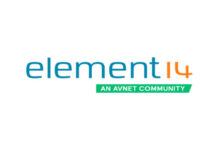The mobility sector is leading the race towards sustainability, as it is one of the largest GHG-emitting sectors. With the global objective of becoming sustainable, several automakers, OEMs, and various regulatory bodies are making efforts to significantly curb carbon emissions. The EU Commission’s ‘Fit For 55’ regulation ensures registration of only zero-emission cars & vans by 2035 across the continent. To reduce the carbon footprint, various automotive companies are committed to innovating & commercializing technologies for fabricating electric vehicles & hydrogen vehicles, deriving alternative fuels, establishing advanced charging & refueling infrastructures, and utilizing bio-based/recycled materials.
Apart from making the mobility sector sustainable, most leading global auto manufacturers are focusing on enhancing comfort for passengers and drivers by revamping the vehicle interiors. The OEMs are aggressively designing & upgrading advanced HMIs for improved personalized comfort, introducing driver and passenger monitoring systems to monitor the health and wellness of travelers rigorously, and propelling the car in-cabin experience to the next level through equipping smart surfaces.
Besides these, all the established as well as emerging automakers are aggressively promoting the automation segment of the mobility industry by innovating and mass-producing or outsourcing the production of electronics and sensors used in autonomous vehicles. Moreover, with the incorporation of 5G and other advanced wireless technologies, V2X connectivity is leveraging enterprises to explore and lead into the Mobility-as-a-Service (MaaS) sector.
IEBS analysts help clients keep abreast with the business strategies and overall technological developments in the mobility sector by delivering crucial insights into recent innovations, potential industry growth, IP filings, mergers & acquisitions, strategic partnerships, etc. The IEBS analysts have profound knowledge of all vehicle types, including conventional vehicles, battery-electric vehicles, and hydrogen-powered vehicles and are well-informed about the market size and regulatory policies across different regions. Thus, they can assist respective clients in expanding their businesses with minimal risk involvement.















